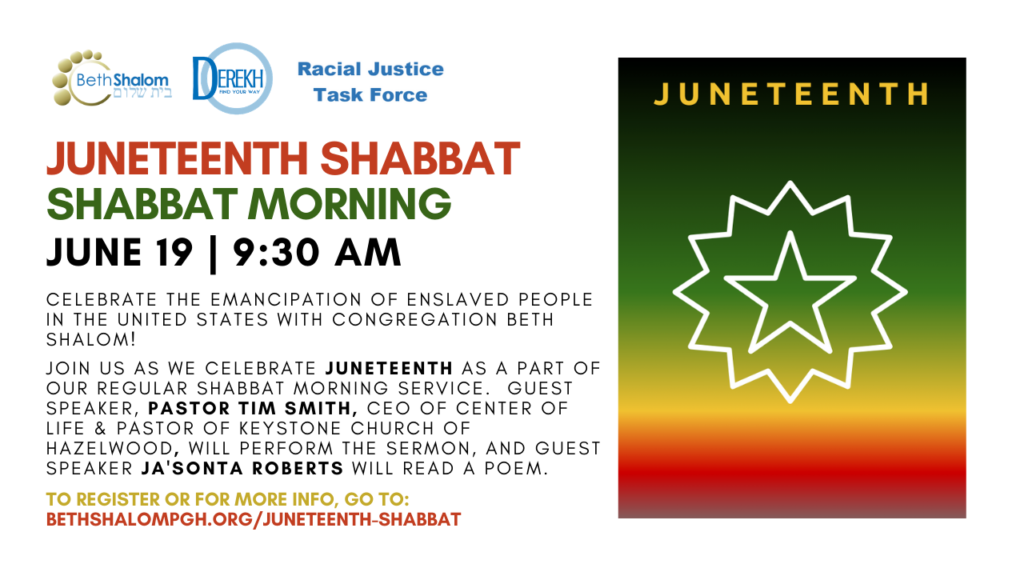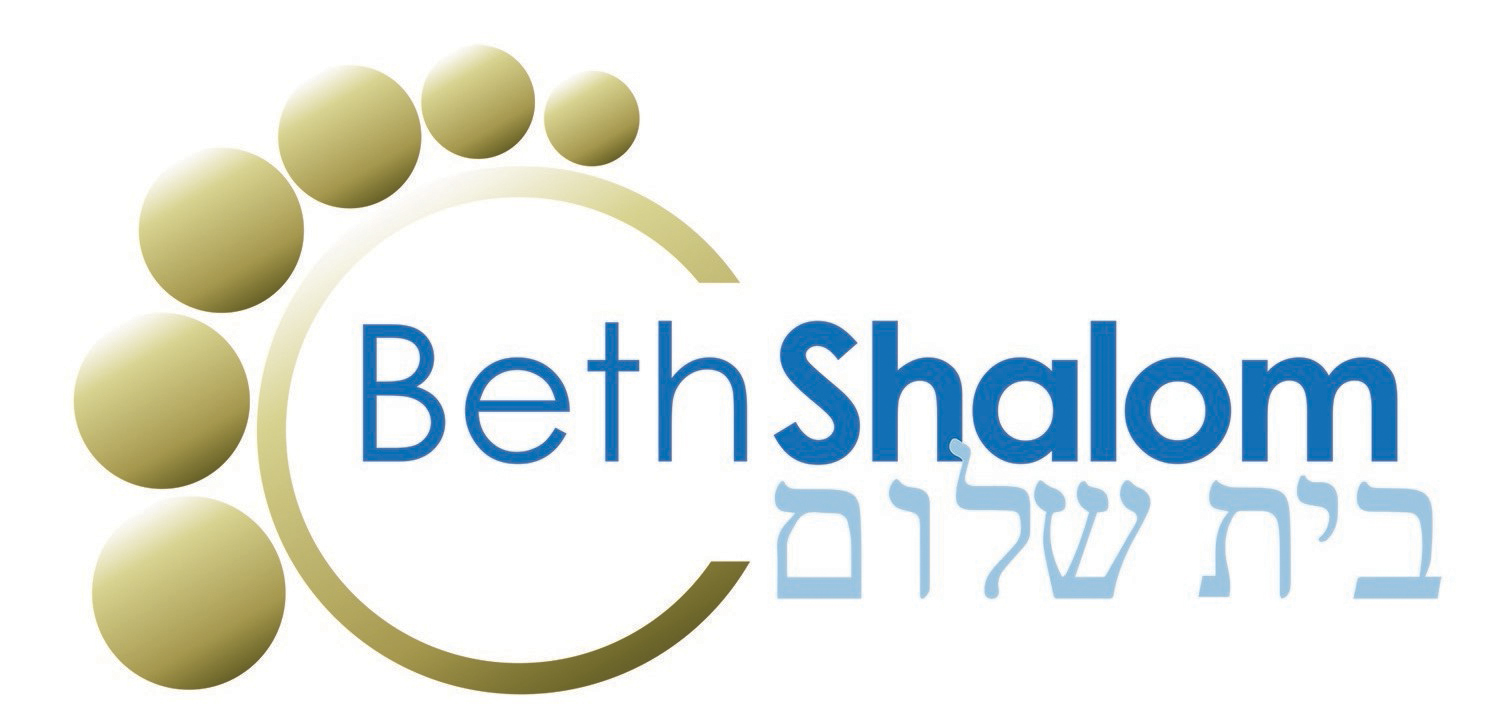Juneteenth Shabbat

Beth Shalom is celebrating Juneteenth in the Faye Rubenstein Weiss Sanctuary as a part of our regular Shabbat morning services. You can join us for Shabbat in person or online.
Guest speaker, Pastor Tim Smith, CEO of Center of Life & Pastor of Keystone Church of Hazelwood, will perform the sermon, and guest speaker Ja'Sonta Roberts will read a poem.
To join via Zoom, click here.
Juneteenth
Juneteenth commemorates the last official declaration of freedom to enslaved people in the United States. Until this happened, many enslaved people had not yet heard nor had been told that they were free. This final declaration occurred in Galveston, Texas, on June 19, 1865.
For more context, here is a list of the major events related to emancipation and leading up to the first Juneteenth:
- September 22, 1862: President Abraham Lincoln issues The Emancipation Proclamation to go into effect on January 1, 1863:
- Freeing enslaved people in Confederate territories retaken by Union troops,
- Excluding the border states already occupied by the Union, and
- Authorizing Black men to fight in the war.
- January 31, 1865: the 13th Amendment is ratified.
- April 6, 1865: Confederate General Robert E. Lee surrenders to Union General Ulysses S. Grant at Appomattox, Virginia.
- May 1, 1865: Formerly enslaved people in Charleston, South Carolina, start the first Decoration Day by properly burying Union soldiers on their plantation. This is the foundation for the annual holiday we know as Memorial Day.
- June 19, 1865:
- Many enslaved people in Texas do not know the war ended and that they are free.
- Major General Gordon Granger arrives in Galveston, Texas, and announces: “The people of Texas are informed that, in accordance with a proclamation from the Executive of the United States, all slaves are free. This involves an absolute equality of personal rights and rights of property between former masters and slaves, and the connection heretofore existing between them becomes that between employer and
hired labor. The freedmen are advised to remain quietly at their present homes and work for wages. They are informed that they will not be allowed to collect at military posts and that they will not be supported in idleness either there or elsewhere.”
—General Orders, Number 3; Headquarters District of Texas, Galveston, June 19, 1865
- June 19, 1866: Local Texans begin celebrating Juneteenth every year. The holiday travels outside of Texas as people leave, but Jim Crow laws and lynching prevent most freely public celebrations. After the Civil Rights movement, the holiday regains in popularity. As of May 2021, out of the 50 states, only South Dakota, North Dakota, and Hawaii do not recognize Juneteenth as a state holiday.
Contemporary Juneteenth celebrations include some of the following activities:
- Reading the Emancipation Proclamation
- Performing classic spirituals or anthems, such as “Swing Low, Sweet Chariot,” “Lift Ev’ry Voice and Sing”
- Reading poetry by Black poets
- Hosting cookouts
- Holding competitions
For more information, check out these resources:
- David Blight, Race and Reunion: The Civil War in American Memory
- Leon Litwack, Been in the Storm So Long: The Aftermath of Slavery
- Elizabeth Hayes Turner, “Juneteenth: Emancipation and Memory,” in Lone Star Pasts: Memory and History in Texas
- Isabel Wilkerson, The Warmth of Other Suns: The Epic Story of America’s Great Migration
- PBS, “What is Juneteenth?”
https://www.pbs.org/wnet/african-americans-many-rivers-to-cross/history/what-is-juneteenth/
Pittsburgh Platoon in Homewood


